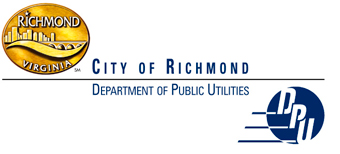Clean, safe water is an important part of every family’s life, and something we’ve come to take for granted in our homes and throughout our community. With the water crisis in Flint, Michigan, concerned Richmonders may wonder what is being done to address questions about lead in the local drinking water supply.
Since the Safe Drinking Water Act and the Environmental Protection Agency’s (EPA) Lead and Copper Rule became laws of the land nationally decades ago, a variety of safety requirements have greatly reduced exposure to lead in tap water.
Despite these measures, localities across the country have identified lead in some metal water taps, interior water pipes, or pipes connecting a house to the water main in the street. When lead is found in tap water, it usually comes from the corrosion of older fixtures or from the solder that connects these pipes. When water pools in leaded pipes for several hours, lead can leach into the water supply.
In Richmond City, the Richmond Department of Public Utilities (DPU) is committed to providing safe drinking water to the nearly 67,000 water customers throughout its service area. The facility also provides water to the surrounding area through wholesale contracts with Henrico, Chesterfield, and Hanover counties. All total, this results in a facility that provides water for approximately 500,000 people.
For more than twenty-five years, DPU has been monitoring and addressing the potential for lead contamination of drinking water in the service pipes to homes and businesses. The agency began collecting data and making changes to its system in 1991 to ensure and maintain compliance with the requirements outlined from the EPA.
It’s the EPA’s Lead and Copper Rule that specifically focuses on treatment techniques for lead, and requires water systems to control the chemistry of the water to prevent lead from leaching from service pipes into drinking water. In Flint, when the water supply was switched in 2014 from the Detroit system to the Flint River, the water was not treated properly and lead from old pipes leached into the system. In Richmond City, the testing performed by DPU determines the optimal chemicals, chemical dose, and pH to keep lead out of the city’s drinking water. Tests are performed daily to verify proper chemical dosage, and automatic testing equipment monitors the pH of the water, providing instantaneous results.
In addition to the process control measures performed at the DPU water treatment plant, the agency also monitors the water that leaves the plant for the proper water quality. The finished water is tested for lead and other regulated substances including microbial contaminants. DPU publishes the results annually in the Consumer Confidence Report available online at richmondgov.com. Results are within standards mandated by the EPA.
Every three years, DPU performs a special study and collects water samples from customers at fifty different locations throughout the service area. These samples are tested for lead and copper concentrations and the information is reported in the Consumer Confidence Report and reviewed by the Virginia Department of Health. DPU also shares this information with customers. Continuous testing since the 1990s shows consistent lead and copper values at the customer’s tap to be less than the action level for each element.
The City of Richmond DPU provides safe drinking water when it leaves the water treatment facility and starts to flow through pipes to the drinking water taps. As a homeowner or renter, you need to know that homes built before 1986 (when the use of lead solder was banned in the United States) have a greater likelihood of having lead components in their water lines. DPU owns the water distribution pipes located in the street and up to the water meter, which is usually located at the curb. The water service line, after the water meter, and the pipes in all buildings are owned by the property owner. Decisions regarding how and when to renew those pipes is the responsibility of that owner. When pipes are replaced, the pipe and materials used must be done in compliance with current plumbing codes and lead-free fixture standards.
Customers concerned about the possibility of lead in drinking water can flush the tap water from the pipes first thing in the morning (or after an extended period of non-use) by letting water run into the sink for at least sixty seconds. If you know the home has a lead service line, tap water should be flushed for an additional two to three minutes before use to ensure fresh water is flowing from the water main. To save and reuse water, flushed water can be collected and is safe to use for cleaning or watering plants. To have your water tested, call the lead service hotline: 804-646-8600.
DPU continues its work to replace publicly owned lead service water lines within its service area. Until all the lead has been removed from DPU and private property water pipes, DPU will keep treating the drinking water to ensure proper water quality to prevent leaching of lead, as well as provide water that is disinfected and safe for Richmond’s customers. DPU will continue testing, monitoring and reporting results to its citizens and the Health Department.





